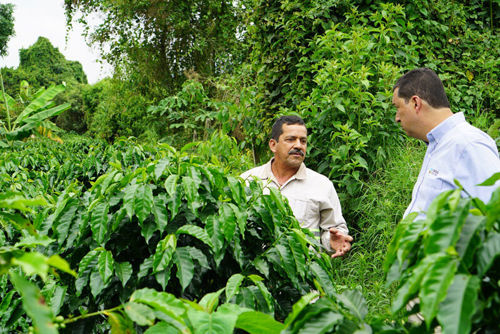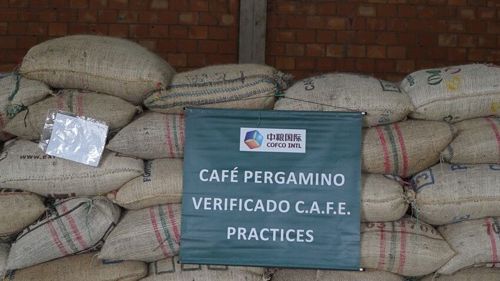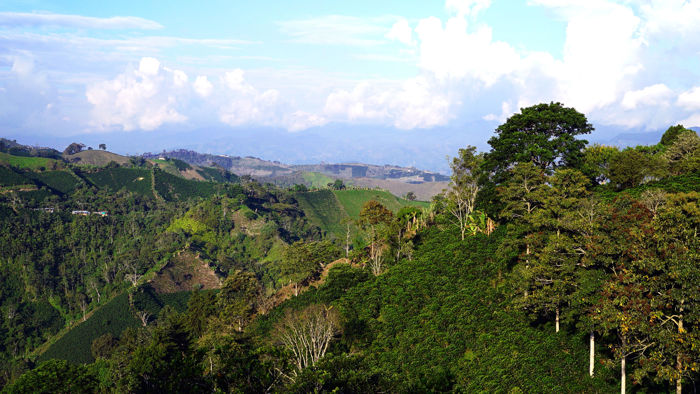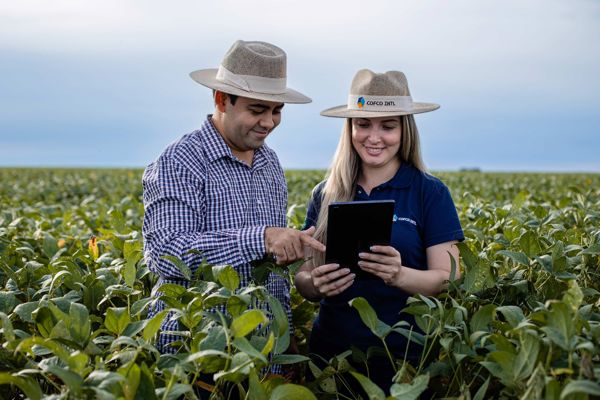
Supporting sustainable coffee in Colombia’s remote Tolima region
Life has never been easy on the steep, green Andean foothills of Colombia’s Tolima region, and not just because the air is thinner
Bad roads, steep mountains, and unreliable communications make it difficult to enter or leave this area. And for nearly half a century, it was at the heart of Colombia’s long-running violence.
But the mineral-rich soils and high altitudes provide ideal conditions to produce some of the world’s tastiest Arabica coffee. And since a peace deal was signed in 2016, Tolima has seen more and more farmers take advantage of the stability to increase their coffee production.
Juan Carlos, 53, is one of 800 farmers in the region who work with COFCO International. Together with beans and maize, he grows coffee on the steep hillsides of his Finca Selva Alegre (“Happy rainforest farm”), using the same manual techniques that his parents and grandparents did. He says the peace deal opens new opportunity.
“Thank God the situation has improved,” he says.
But the situation is not yet completely stable. Even though the region is perfectly suited to growing coffee, it remains a struggle to make a living, because global coffee prices have fallen in recent years. In Colombia, some farmers have replaced coffee production to cultivate the more profitable coca crop instead. This coca may be illegal, but these are difficult times. Others have stopped farming altogether, moving to cities in search of better work.

Connecting farmers to Starbucks
COFCO helps Colombian farmers stay in the business of growing coffee by increasing their productivity and getting better prices for their product. COFCO buys coffee in three regions, but has focused its sustainability work on Tolima, where the need for support is greatest. Tolima may have become one of Colombia’s most productive coffee regions again, but it remains one of the country’s poorest. Schools, hospitals, and roads are still in need of repair. Farmers are far from their markets.
As a first step, COFCO’s sustainability program connects the farmers to Starbucks, which requires supplying farmers to comply with its C.A.F.E. Practice standard. Based on 200 social, economic, and environmental indicators, this verification means the coffee production is sustainable and economically viable, providing a powerful signal to roaster and consumer alike.
“Sustainability goes all along the supply chain,” says Juan Camilo Barrios Camargo, who manages COFCO’s sustainability programme in Tolima.
“If everybody is happy, then we are sustainable, otherwise we are not.”
Working towards the C.A.F.E. Practices standard, COFCO supports the farmers on a range of issues from soil analysis and disease control to increased productivity and new agricultural techniques. They also receive advice on climate-resilient farming even if extreme weather events, such as drought, have not yet hit the Tolima region. In case the climate gets warmer, farmers say they will move production up the mountains. But the weather has become less predictable, with harvest seasons shifting one or two months away from the norm.

Progress can be slow, however. Building trust with the farmers takes time and despite the peace process, Tolima can still be hard to access. Its farmers are spread across the countryside, and rainy weather turns the roads to mud and dirt.
“A lot of our work is done face-to-face, and bit-by-bit,” says Juan Camilo.
Progress with certification allows the farmers to sell their coffee at higher prices. And whether or not the farmers achieve their certification, COFCO’s technical assistance still brings benefits.

